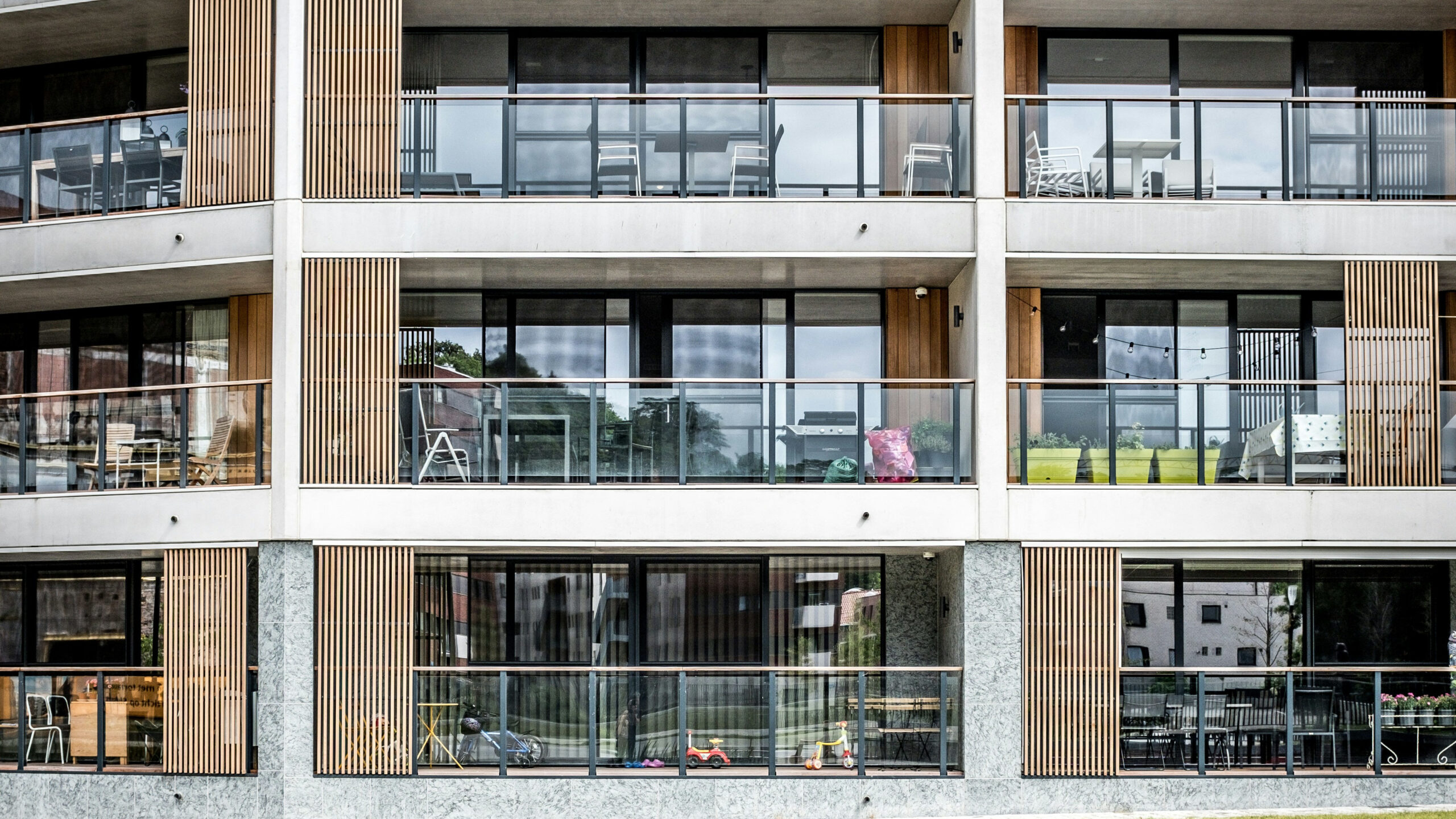
The increase in construction and renovation costs, as well as in financing costs, have intensified the challenges for affordable and sustainable housing in Belgium. These costs obviously have a strong impact on access to housing. At a time when housing sustainability requirements are becoming increasingly stringent and the population needs more and more housing.
Rising costs
Since 2019, i.e. just before the outbreak of the health crisis, the outbreak of the war in Ukraine and the subsequent energy crisis, the cost of housing in Belgium has risen by about 20%. The increase in the cost of materials and wages (+40% and +19% respectively from 2019) largely explains this evolution.
Financing costs have also risen sharply. The mortgage rate for a 20-year fixed-rate loan more than doubled between the beginning of 2022 and half of 2023. Consequently, monthly repayments for the same borrowed amount increased by 18%. In total, the cost of a monthly mortgage payment to finance 80% of the value of a home increased by 36% between 2019 and 2023, significantly more than the average, of consumer prices, which increased by 17% over the same period.
Difficult financing
Needless to say, the financial issues of housing have also consequently become even more important while they already weighed heavily before the rise in costs.
In a 2021 survey conducted by the Belgian construction employers’ federation Embuild, 75% of those looking to become owners reported that the cost of land, construction costs and the price of existing housing were already problematic then. Moreover, even with the historically low mortgage rates at the time, almost half of owners reported that mortgage loan repayment was also an obstacle.
This survey also revealed that rent was an issue for 75% of tenants. For more than half of owners, energy renovation standards are a problem for them and half of them believe that lack of financial resources is the main obstacle to energy renovation.
ABOUT THE AUTHOR
Jean-Pierre Liebaert
Aquiec-Vkebi
Jean-Pierre Liebaert has been following the construction situation and all economic issues relating to construction since he graduated as a Civil Engineer in Applied Mathematics - Economics. On the strength of this experience, he has represented Belgium at Euroconstruct since 2000, through AQUIEC. He is also general adviser at Embuild, member of the economic commission of the Belgian Federation of Enterprises and holds various mandates in official Belgian bodies. These include the Central Economic Council, the Higher Council for Statistics and the pricing office for compulsory construction insurance.
Growing housing needs
Belgium’s population will continue to grow in the coming years. The Federal Planning Bureau expects the country to have a population of 12.8 million by 2060, compared to 11.6 million today.
The Federal Planning Bureau also expects the downward trend in the average size of families to continue, particularly due to a sharp increase in the proportion of single people (from 35% to 40% over the next 40 years).
The combination of a rising population and falling family size means that the need for new housing will remain high in the coming years. Specifically, there will be 225,000 additional families to house by 2030 and 810,000 by 2060.
Need for accelerated energetic renovation of the housing stock
The housing stock not only needs to be expanded in the coming decades. It must also be thoroughly tackled. It must be modernised (56% of Belgium’s building stock was built before 1982). It must be adapted to the rising proportion of single people and smaller families. And above all, it needs to be renovated at an accelerated pace in terms of energy. To meet the 2050 targets, 3% of the stock must be brought up to standard every year, compared to 1% today.
Conclusion
The housing challenge is enormous in Belgium. Higher prices and more expensive financing have slowed down the production of new houses and the renovation of existing ones. But the housing stock needs further expansion and accelerated renovation.
The question then is what policy will be adopted for this after the Belgian elections in June 2024 and to what extent it will be able to meet the challenge.
ABOUT THE AUTHOR
Jean-Pierre Liebaert
Aquiec-Vkebi
Jean-Pierre Liebaert has been following the construction situation and all economic issues relating to construction since he graduated as a Civil Engineer in Applied Mathematics - Economics. On the strength of this experience, he has represented Belgium at Euroconstruct since 2000, through AQUIEC. He is also general adviser at Embuild, member of the economic commission of the Belgian Federation of Enterprises and holds various mandates in official Belgian bodies. These include the Central Economic Council, the Higher Council for Statistics and the pricing office for compulsory construction insurance.
